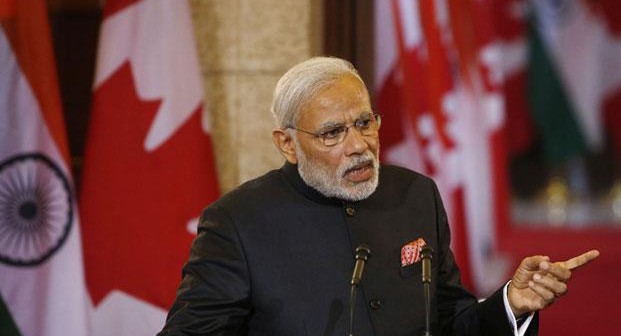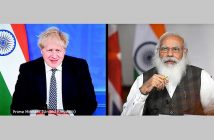Indian Prime Minister Narendra Modi prioritised a visit to Europe in his travel schedule within his first year in government and, in doing so, is paving the way for a new India-EU partnership.
The back-and-forth over the India-EU Free Trade Agreement (FTA) must not be allowed to overshadow the huge potential that remains untapped between these two great economic blocs. There is a tendency to use the FTA like a political football in a doomed match neither side is destined to win.
The success of Mr Modi’s recent tour of France and Germany will most certainly be measured by how the two sides are able to zero in on the sticking points of this agreement and find a fair middle ground.
Petty political posturing often hampers the path to all-round economic prosperity. A refreshed approach and framework for continued dialogue is therefore a pre-requisite.
One of the fastest growing Indian Diaspora population is to be found in Italy today. The EU’s posturing over Italian marines part of the Indian legal system on murder charges casts a shadow over what is in every sense a historic visit from the Indian side. A proposed India-EU summit should not have been held to ransom in this unfortunate saga.
The choice of France and Germany reveals a very clear pattern of India’s foreign policy of enlightened self-interest. But at the same time the Indian PM deftly recognises the need to meaningfully engage in world issues such as climate change and the Islamic State and other terror-related threat that knows no geographical boundaries.
While in Germany, statements on the expansion of the United Nations to reflect the realities of the modern world not only mark a shrewd political manoeuvre but also a recognition of Germany’s continued predominance within the European landscape.
The UK, in all its election campaign stupor, has been playing hide-and-seek over its place within the European Union. It is sending out the wrong signal, not least to Indian investors because gone are the days when Britain could take for granted its predominance as the preferred landing bay and launch-pad for Indian companies looking to expand in Europe. This is a matter of concern to me and many others who have dedicated many years to promoting the UK as an integral part of the EU-India dialogue.
Beyond the photo-ops and general headlines, some solid deals were struck which will continue to shape our policy in the region for the coming years. The purchase of Rafale fighter jets and France promising €20-billion worth of investments in India’s development story and India’s partnership of the world’s biggest trade fair in Germany are just some of the highlights that will continue to resonate.
A tie-up between Larsen & Toubro and Areva on tech transfer for a power plant in Maharashtra and an MoU in the renewable energy sector in France and ease of German investment flows into India and working together on smart cities were some of the other highlights.
The broad spectrum of cooperation can hinge comfortably around the Modi government’s ambitious Digital India strategy. Europe contributes almost 33 per cent to the global offshore information technology sector and Indian IT majors like TCS, Infosys and Wipro have in the last year alone struck a series of long-term deals worth millions of euros across Europe. With the Digital India campaign at the heart of India’s development agenda, this could just be a taster of what is yet to come. I believe that there are huge opportunities for Europe-based companies to invest and partner with Indian companies – in India, and as global partners.
India Inc. took its own initiative against the backdrop of the Indian PM’s tour of the region with its third Strategic Dialogues Series on Digital India at Brussels. The high profile European leg which included Indian IT Minister Ravi Shankar Prasad and Secretary RS Sharma picked up on the issues thrown up at the first conclave in New Delhi in December 2014 followed by one in Washington DC in January this year.
In Belgium at the India Inc. conclave, there were two major outcomes. Firstly, an invitation from the European Commission’s Smart Cities team for India to partner with the programme, and from the Commission’s Digital Connect chief, Robert Madalin the mooting of an India-EU Innovation & Start-Ups Forum. I am pleased to say that India Inc. will be partnering in both these initiatives. I am certain that these are suggest two of many synergies that will continue to define the India-EU partnership of the future.
The above article was first published in April e-edition of India Inc.’s India Global Business Magazine.
Manoj Ladwa is the founder of India Inc. and chief executive of MLS Chase Group @manojladwa







